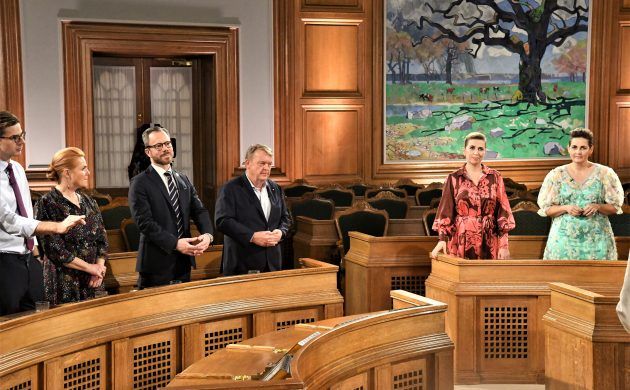Over five weeks ago we had a general election that established an unusual balance between the red and blue blocs of the Danish Parliament.
Mette in the middle
In the middle, former PM Løkke Rasmussen tinted his new party Moderaterne a shade of purple to become a stepping stone between the blocs. However, his effort came one seat short of being decisive.
Now PM Mette Frederiksen, who triumphed as a Socialdemokratiet but lost in her effort to consolidate the red bloc, is sitting in her ivory tower receiving supplicants who want to join her middle-ground government – the sort of which we have not had for decades.
It mainly depends on Venstre, a centre-right blue bloc party that struggled in the election and is still coming to terms with losing key profiles and experience.
Lars left out
Will this be solved before Christmas? Nobody can tell. However, they are still talking, and inevitably they will soon be drafting the white paper that will pave the main road to a new-look government in office.
Primarily, it will consist of Venstre and Socialdemokratiet, along with a few other parties in support – most likely Radikale. Konservative and SF have lost interest in joining the government, and Moderaterne will not be invited, leaving Lars Løkke Rasmussen on the opposite side of the middle-ground government he so strongly advocated for.
While we are waiting, it is all peaceful around Christiansborg. The tradition is that Parliament, until a government can present itself with no majority against it, is on (to use an ice hockey term) ‘in the penalty box’.
Climate on agenda again
In the meantime, other alarm bells have been silenced. Petrol prices are almost back to normal. Natural gas remains expensive but is readily available. Firewood is on the market at normal prices. Inflation is high but has stopped accelerating.
That means that when we return to being governed, we can expect something to be done about the real problems.
Climate change has not gone away and must be addressed. COP27 saw a funding pledge from rich countries – ones whose development was aided by lots of CO2 emissions – to the poorer countries most likely to suffer from the climate anomalies. We have not seen the money yet, but facing the problem is at least something.
And Ukraine too
The other major issue is security in Europe. The Ukrainians are fighting bravely, and the Russians are encountering dire problems at the front and increasingly at home. Now we will see what effect the Ukrainian winter has.
Historically-speaking, armies have a habit of underestimating the impact of winter. The Ukrainians have already survived so much, and their western friends seem determined to support them.
So apart from a miserable football performance in Qatar, which we will soon forget, we wish you all a merry Christmas and a happy new year.

